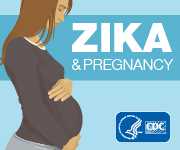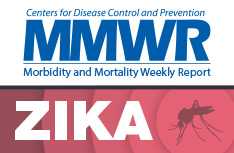Zika Glossary
When discussing your baby’s health with his or her doctors, some of the following medical terms may be used. Ask your doctor to explain any terms that you are not familiar with.
Antenatal: The time period before birth or during pregnancy.
Calcifications: Calcium builds up in areas where the brain has been damaged.
Care Plan: A document that describes your child’s health needs and how those needs are going to be addressed
Cerebral cortex: The outer layer of the brain that plays a part in many of the more complex functions of the brain, like language and information processing
Congenital contractures: A problem with movement at one or more joints
Congenital Zika syndrome: A pattern of birth defects that can occur in an infant who was infected with Zika virus before birth.
Conjunctivitis: Inflammation of the clear membrane that covers the white part of the eye, resulting in an eye that looks pink or red.
Extrapyramidal nervous system: The part of the nervous system that is responsible for involuntary movement.
Retina: The back of the eye where light is detected and this information is passed to the brain.
Hypertonia: Increased tone in body muscles making movement difficult
Intrauterine: Within the uterus/womb (during pregnancy)
Macula: The part of the eye that is responsible for central and color vision.
Metabolic Panel: A blood test that measures sugar levels, electrolyte and fluid balance, kidney function, and liver function
Microcephaly: A condition in which a child’s head is much smaller than expected compared to other children of the same age and sex. Microcephaly can occur because a child’s brain has not developed properly during pregnancy or has stopped growing after birth, which results in a smaller head size.
Neuroimaging: The process of determining the structure or function of the brain through various imaging techniques.
Occipitofrontal circumference: The distance around a child’s head
Perinatal: The time period immediately before and after birth
Prenatal: The time period before birth (during pregnancy)
Pyramidal nervous system: The part of the nervous system that is responsible for voluntary movement.
Virus: A small organism that can infect a person and cause illness or disease.
- Page last reviewed: March 1, 2017
- Page last updated: March 1, 2017
- Content source:





 ShareCompartir
ShareCompartir